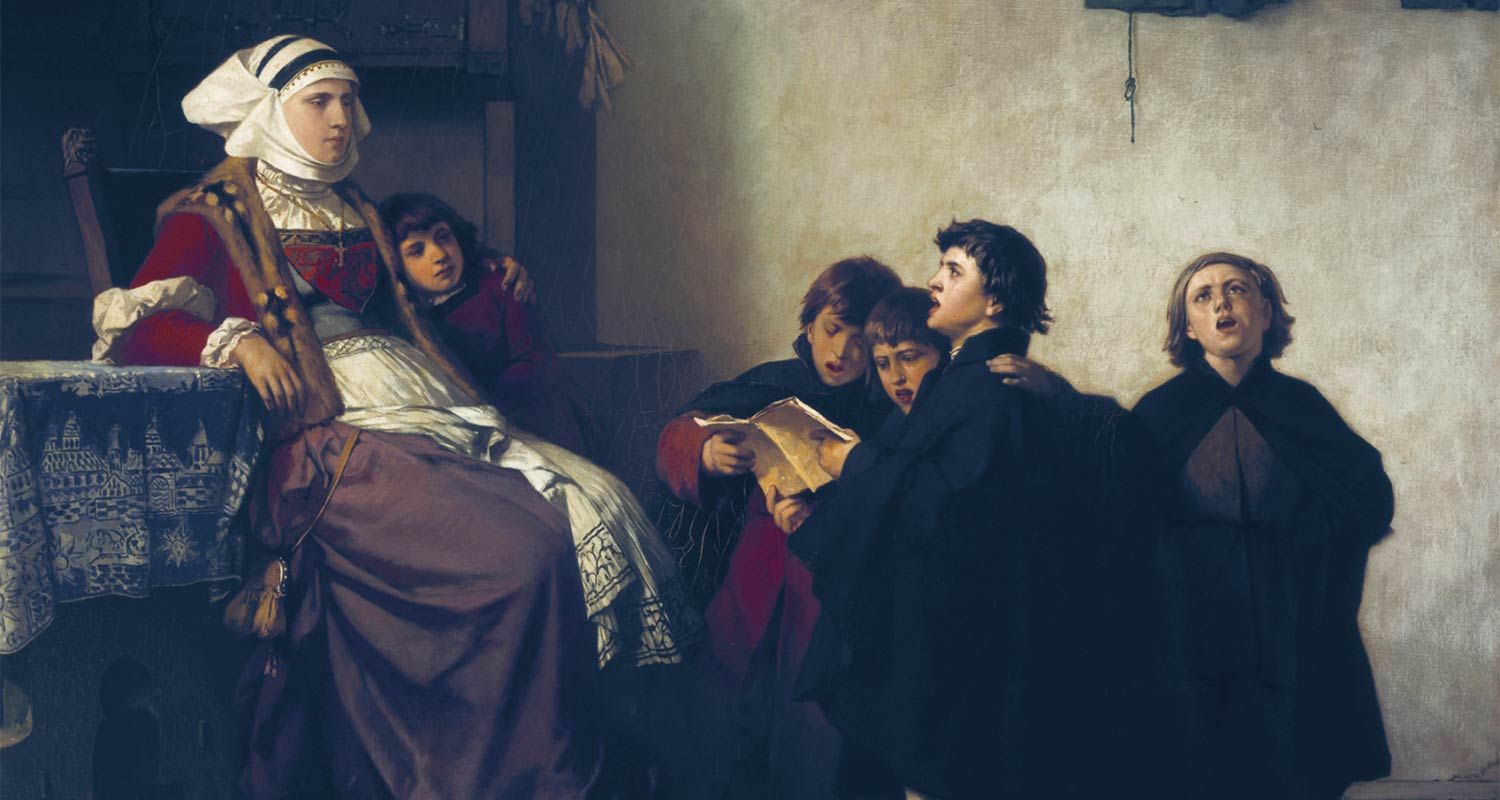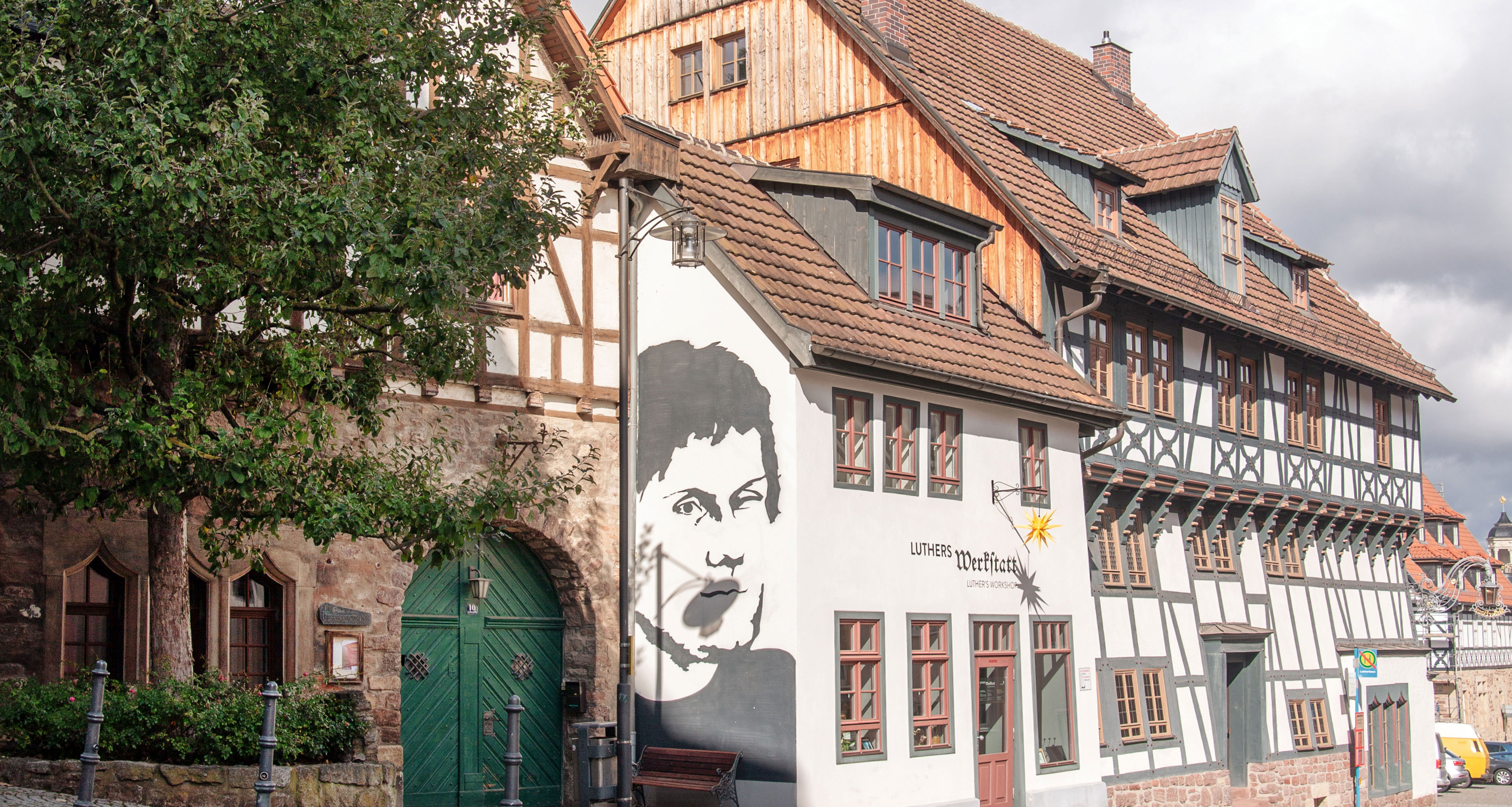Luther in Eisenach
Luther’s schooldays
Martin Luther grew up in Mansfeld but spent the most important years of his schooling here in Eisenach where he attended St. George’s Latin School in 1498 to 1501 in preparation for attending the University of Erfurt.
At first, he lived with relatives. After all, his family originally came from Thuringia (his mother from Eisenach and his father from Möhra, just twenty kilometers away from Eisenach). Luther initially earned his keep as a choirboy – just as Johann Sebastian Bach did later – and was eventually taken in by the influential Cotta and Schalbe families with whom he lived in what is now the Lutherhaus, among other places.
Luther’s schooldays were some of the most formative and happiest years of his youth. He not only learned and came to appreciate Latin here but also discovered his love for music and was deeply impressed by the Franciscan friars’ intense piety. Later on, he fondly recalled the time he spent in his “beloved city”. Luther made world history in Eisenach twenty years later: He translated the New Testament at Wartburg Castle in just eleven weeks, not only creating a bestseller but also the foundation of written German. Learn why, how and with whom Luther translated the Bible in our permanent exhibition “Luther and the Bible”. Come on by!
Luther’s Apple Tree?
The saying, “If I knew the world were going to end tomorrow, I would still plant an apple tree today,” is one of the most familiar Luther quotes, even though it never came from the reformer’s pen at all.
The first written documentation of this reputed saying of Luther’s dates to the period of World War II. On October 5, 1944, Hessian pastor Karl Lotz (1890–1946) penned these lines in a circular to the representatives of the Confessing Church of Electoral Hesse-Waldeck: “Please do not be put off by my missive in light of our nation’s tense situation. We must surely follow Luther’s words: And if the world were going to end tomorrow, we want to plant our apple tree today.” Pastor Lotz used the apple tree quote, evidently already known at that time as a reputed “Luther saying”, to encourage and reassure his colleagues from the Confessing Church in difficult times. The Confessing Church was an opposition movement within the Protestant church, which was established in 1934 and primarily directed against the Nazi-minded German Christians.
The apple tree quote started rapidly gaining greater currency in May 1950: Journalist Thilo Koch (1920–2006) selected it to open a radio feature about a conference of the newly established Protestant Academy Loccum. Koch explicitly mentioned Bishop Hanns Lilje (1899–1977) of Hannover, from whom he had first heard the saying. One week later, both Lilje and German Minister of the Interior Gustav Heinemann (1899–1976) closed their addresses with it at the Pentecost conference of the Jungenwacht/Protestant School Student Bible Study Groups. Both employed the apple tree quote in the context of the growing tensions between West Germany and East Germany and the worsening global political situation, which escalated in the Korean War a short time later.
The quote was subsequently cited repeatedly, invariably being attributed to Luther. It also found its way onto the plaque installed in front of the apple tree next to the Lutherhaus between 2000 and 2022. Today, an explanation of this misattributed Luther quote’s backstory, which was written and put up by the Lutherhaus Eisenach, stands on that spot.

